Crohn's Disease
How to submit an article:
- Registered users can submit any published journal article that has a unique DOI (Digital Object Identifier) name or link to Research Hub.
- For example, you can paste the full DOI link:
https://doi.org/10.1109/5.771073or just the DOI name:10.1109/5.771073into the field above and click submit. - The person who is first to submit a valid article to Research Hub will forever be credited for it, and every article submission earns you +6 Research Points.
Published research studies are articles that present the findings of original research that has undergone a peer-review process and has been made publicly available in scholarly journals, books or other media.
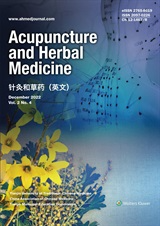
Acupuncture for Crohn’s disease: current status and future perspectives
2023 Oct 16 Acupuncture and Herbal Medicine Bao C, Zhang J, Wu H
Acupuncture is recognized internationally for its benefits in improving clinical symptoms, maintaining long-term remission, and regulating intestinal microbiota and immune responses in patients with Crohn's disease.
Theoretical Article Review Article Acupuncture Crohn's Disease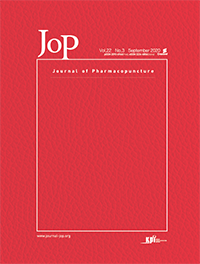
The Effects of Acupuncture on Crohn’s Disease: a systematic review and meta-analysis
2023 Sep 30 Journal of Pharmacopuncture Bae JH, Kang SY, You SE, Jeong HI, Jang S, Kim KH
Meta-Analysis Systematic Review Acupuncture Crohn's DiseaseAcupuncture combined with moxibustion has shown significant benefits in the treatment of mild to moderate Crohn's disease.

Assessment of anti-inflammatory efficacy of acupuncture in patients with inflammatory bowel disease: A systematic review and meta-analysis
2023 Jun Complementary Therapies in Medicine Yang X, He M, Tang Q, Wang Z, Jin D, Wu X, et al.
Meta-Analysis Systematic Review Acupuncture Crohn's DiseaseAcupuncture demonstrates a positive therapeutic effect on inflammatory bowel disease (IBD) by effectively regulating associated inflammatory factors.
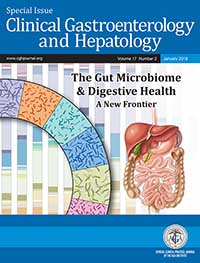
Ultra-processed Foods and Risk of Crohn’s Disease and Ulcerative Colitis: A Prospective Cohort Study
2022 Jun Clinical Gastroenterology and Hepatology Lo CH, Khandpur N, Rossato SL, Lochhead P, Lopes EW, Burke KE, et al.
Cohort Study Ultra-Processed Foods Ulcerative ColitisHigher consumption of ultra-processed food is linked to an increased risk of developing Crohn's disease, with no consistent connection observed with ulcerative colitis.
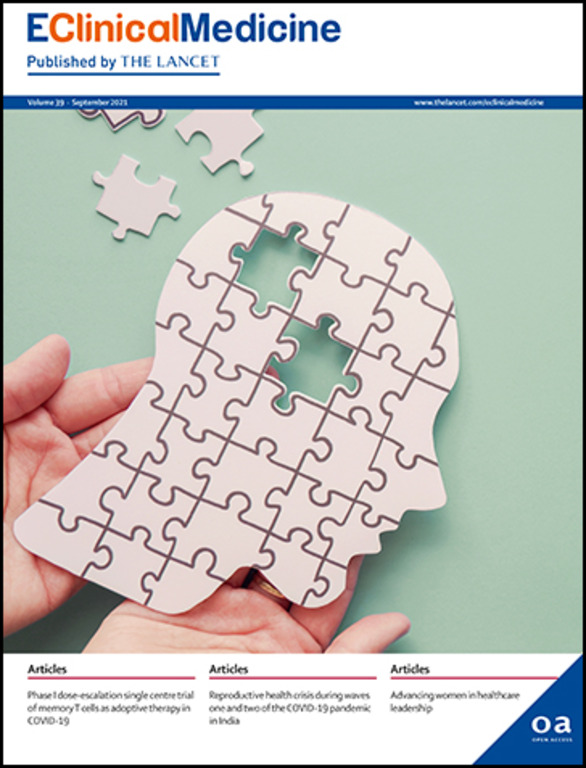
Acupuncture improves the symptoms, intestinal microbiota, and inflammation of patients with mild to moderate Crohn's disease: A randomized controlled trial
2022 Mar EClinicalMedicine Bao C, Wu L, Wang D, Chen L, Jin X, Shi Y, et al.
Randomised Controlled Trial Acupuncture Crohn's DiseaseAcupuncture effectively induced and sustained remission in active Crohn's disease patients, linked to an increase in anti-inflammatory gut bacteria and improved intestinal barrier.
Research insights are moderated by the Research Hub team and offer an at-a-glance overview of interesting research findings.

2023 Journal of Pharmacopuncture
Acupuncture combined with moxibustion has shown significant benefits in the treatment of mild to moderate Crohn's disease.
Meta-Analysis Acupuncture
The Effects of Acupuncture on Crohn’s Disease: a systematic review and meta-analysis
Bae JH, Kang SY, You SE, Jeong HI, Jang S, Kim KH

2023 Complementary Therapies in Medicine
Acupuncture demonstrates a positive therapeutic effect on inflammatory bowel disease (IBD) by effectively regulating associated inflammatory factors.
Meta-Analysis Acupuncture
Assessment of anti-inflammatory efficacy of acupuncture in patients with inflammatory bowel disease: A systematic review and meta-analysis
Yang X, He M, Tang Q, Wang Z, Jin D, Wu X, et al.

2022 Clinical Gastroenterology and Hepatology
Higher consumption of ultra-processed food is linked to an increased risk of developing Crohn's disease, with no consistent connection observed with ulcerative colitis.
Cohort Study Ulcerative Colitis Ultra-Processed Foods
Ultra-processed Foods and Risk of Crohn’s Disease and Ulcerative Colitis: A Prospective Cohort Study
Lo CH, Khandpur N, Rossato SL, Lochhead P, Lopes EW, Burke KE, et al.

2022 Frontiers in Pharmacology
Probiotics combined with traditional Chinese medicine have shown higher rates of efficiency in the treatment of ulcerative colitis than when each is used individually.
Meta-Analysis Probiotic
Efficacy and Safety of Probiotics Combined With Traditional Chinese Medicine for Ulcerative Colitis: A Systematic Review and Meta-Analysis
Hu Y, Ye Z, She Y, Li L, Wu M, Qin K, et al.

2022 EClinicalMedicine
Acupuncture effectively induced and sustained remission in active Crohn's disease patients, linked to an increase in anti-inflammatory gut bacteria and improved intestinal barrier.
Randomised Controlled Trial Acupuncture
Acupuncture improves the symptoms, intestinal microbiota, and inflammation of patients with mild to moderate Crohn's disease: A randomized controlled trial
Bao C, Wu L, Wang D, Chen L, Jin X, Shi Y, et al.
Review Articles
Review articles summarise and critically evaluate the current state of research on a specific topic or field by synthesising multiple primary research studies.

Acupuncture for Crohn’s disease: current status and future perspectives
2023 Oct 16 Acupuncture and Herbal Medicine Bao C, Zhang J, Wu H
Acupuncture is recognized internationally for its benefits in improving clinical symptoms, maintaining long-term remission, and regulating intestinal microbiota and immune responses in patients with Crohn's disease.
Theoretical Article Review Article Acupuncture Crohn's Disease
The Effects of Acupuncture on Crohn’s Disease: a systematic review and meta-analysis
2023 Sep 30 Journal of Pharmacopuncture Bae JH, Kang SY, You SE, Jeong HI, Jang S, Kim KH
Meta-Analysis Systematic Review Acupuncture Crohn's DiseaseAcupuncture combined with moxibustion has shown significant benefits in the treatment of mild to moderate Crohn's disease.

Assessment of anti-inflammatory efficacy of acupuncture in patients with inflammatory bowel disease: A systematic review and meta-analysis
2023 Jun Complementary Therapies in Medicine Yang X, He M, Tang Q, Wang Z, Jin D, Wu X, et al.
Meta-Analysis Systematic Review Acupuncture Crohn's DiseaseAcupuncture demonstrates a positive therapeutic effect on inflammatory bowel disease (IBD) by effectively regulating associated inflammatory factors.

Efficacy and Safety of Probiotics Combined With Traditional Chinese Medicine for Ulcerative Colitis: A Systematic Review and Meta-Analysis
2022 Mar 07 Frontiers in Pharmacology Hu Y, Ye Z, She Y, Li L, Wu M, Qin K, et al.
Meta-Analysis Systematic Review Probiotic Crohn's DiseaseProbiotics combined with traditional Chinese medicine have shown higher rates of efficiency in the treatment of ulcerative colitis than when each is used individually.
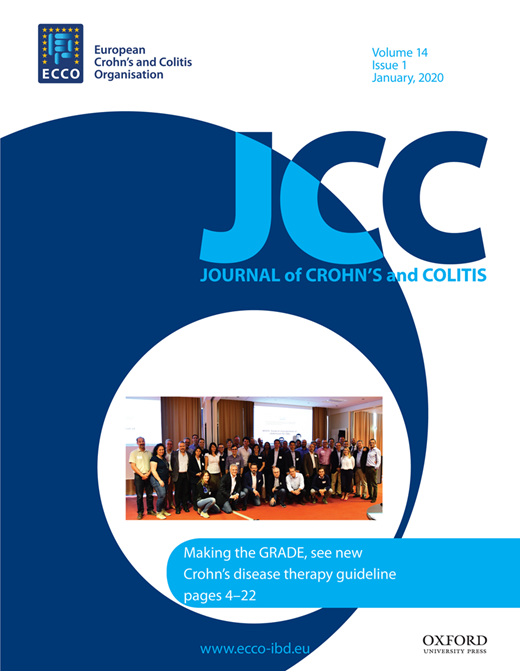
Systematic review of complementary and alternative medicine treatments in inflammatory bowel diseases
2015 Jan Journal of Crohn's and Colitis Langhorst J, Wulfert H, Lauche R, Klose P, Cramer H, Dobos GJ, et al.
Systematic Review Inflammatory Bowel DiseaseClinical Trials
Clinical trials are research studies that involve people and are conducted to evaluate the safety and efficacy of new treatments or interventions, such as drugs, medical devices, or behavioural therapies.
Study Protocols
Published study protocols are detailed plans that outline the objectives, methodology, statistical analyses, and organisation of a research study that have been made publicly available for others to review and use as a reference.
Presentation Slides

Meta-Analysis
Acupuncture combined with moxibustion has shown significant benefits in the treatment of mild to moderate Crohn's disease.
Bae JH, Kang SY, You SE, Jeong HI, Jang S, Kim KH

Meta-Analysis
Acupuncture demonstrates a positive therapeutic effect on inflammatory bowel disease (IBD) by effectively regulating associated inflammatory factors.
Yang X, He M, Tang Q, Wang Z, Jin D, Wu X, Yang Y, Ma D, Sun M, Li T

Cohort Study
Higher consumption of ultra-processed food is linked to an increased risk of developing Crohn's disease, with no consistent connection observed with ulcerative colitis.
Lo CH, Khandpur N, Rossato SL, Lochhead P, Lopes EW, Burke KE, Richter JM, Song M, Ardisson Korat AV, Sun Q, Fung TT, Khalili H, Chan AT, Ananthakrishnan AN

Meta-Analysis
Probiotics combined with traditional Chinese medicine have shown higher rates of efficiency in the treatment of ulcerative colitis than when each is used individually.
Hu Y, Ye Z, She Y, Li L, Wu M, Qin K, Li Y, He H, Hu Z, Yang M, Lu F, Ye Q

Randomised Controlled Trial
Acupuncture effectively induced and sustained remission in active Crohn's disease patients, linked to an increase in anti-inflammatory gut bacteria and improved intestinal barrier.
Bao C, Wu L, Wang D, Chen L, Jin X, Shi Y, Li G, Zhang J, Zeng X, Chen J, Liu H, Wu H

Meta-Analysis
Traditional Chinese Medicine (TCM), when used alongside Western Medicine (WM), seems to improve treatment outcomes for Crohn's disease.
Wang Y, Li M, Zha AS
Executive Summary
Write an executive summary in the form of a blog article on the topic of "Research into Chinese medicine treatment for Crohn's Disease" summarising the research below and using language that can be easily understood by patients and avoiding medical jargon using a professional and caring tone of voice.
Write an executive summary in the form of a blog article on the topic of "Researched Chinese medicine treatments for Crohn's Disease" summarising the research below in an objective and easy to understand way, and using language that can be easily understood by patients. Group the article into Chinese medicine treatments first, followed by nutrition and other treatments. Avoid using medical jargon and use a professional and caring tone of voice.
Write me a concise but easy to understand executive summary on the topic of "Chinese medicine treatments for Crohn's Disease" based on the following research that I will give you. Your summary should be 2 paragraphs long in Australian English spelling and include references to the studies.
A Meta-Analysis published in 2023 in the journal Journal of Pharmacopuncture found that Acupuncture combined with moxibustion has shown significant benefits in the treatment of mild to moderate Crohn's disease. In this systematic review, the researchers conducted a comprehensive search of 12 databases for randomized controlled trials on the impact of acupuncture on Crohn's disease. Three independent reviewers assessed the risk of bias for each study. The level of evidence from meta-analyses was evaluated using the Grading of Recommendations, Assessment, Development, and Evaluation methodology. The review included a total of 12 studies. Findings suggest that acupuncture combined with moxibustion, a traditional East Asian treatment involving burning a small bunch of herbs on particular points on the body, had an effect on the treatment outcomes for patients with mild to moderate Crohn's disease when compared to a group given sham acupuncture and sham moxibustion treatments. Notably, findings on the effectiveness of acupuncture treatment only, without the addition of moxibustion, were less clear. It is also important to emphasize that this review was firmly focused on the benefits of the treatment on patients with mild to moderate symptoms of Crohn's disease.
A Meta-Analysis published in 2023 in the journal Complementary Therapies in Medicine found that Acupuncture demonstrates a positive therapeutic effect on inflammatory bowel disease (IBD) by effectively regulating associated inflammatory factors. Eight electronic databases were utilized in a systematic search for studies that satisfied the pre-defined inclusion parameters. Two impartial reviewers evaluated the quality of the resultant studies and a meta-analysis was then performed to assess the efficacy of acupuncture on IBD and its related inflammatory factors which include TNF-α, IL-1, IL-8, and IL-10. The analysis comprised of four randomized controlled trials that involved a total of 228 patients. The beneficial effects of acupuncture on IBD patients were thoroughly inspected, as well as its ability to regulate levels of specified inflammatory factors. The P values, which refer to the probability that any observed result occurred by chance, were critically assessed for every inflammatory factor - significance was found in the values of TNF-α, IL-8, and IL-10, but not for IL-1. The conclusion drawn was that acupuncture has a positive therapeutic impact on individuals suffering from IBD, and quite importantly, can regulate inflammatory factors in these patients. As a result of these findings, it is suggested that TNF-α, IL-8, and IL-10 are the ideal inflammatory indicators for evaluating the anti-inflammatory response in this patient category.
A Cohort Study published in 2022 in the journal Clinical Gastroenterology and Hepatology found that Higher consumption of ultra-processed food is linked to an increased risk of developing Crohn's disease, with no consistent connection observed with ulcerative colitis. A prospective cohort study was conducted using three nationwide cohorts of health professionals in the United States. The study utilized self-reported consumption of ultra-processed foods to assess its association with the risk of Crohn's disease and ulcerative colitis. It involved 245,112 participants and spanned several years of observation. The analysis primarily leveraged Cox proportional hazards models to estimate hazard ratios for Crohn's disease and ulcerative colitis while adjusting for potential confounding factors. The study observed a total of 369 cases of Crohn's disease and 488 cases of ulcerative colitis over the period of follow-up. The participants in the highest quartile of ultra-processed food consumption experienced a noteworthy surge in the risk of developing Crohn's disease. Ultra-processed breads, breakfast foods, frozen or shelf-stable ready-to-eat or heat meals, and certain spreads and gravies showed the strongest positive correlations with Crohn's disease risk. However, no clear association was seen between ultra-processed food intake and the incidence of ulcerative colitis.
A Meta-Analysis published in 2022 in the journal Frontiers in Pharmacology found that Probiotics combined with traditional Chinese medicine have shown higher rates of efficiency in the treatment of ulcerative colitis than when each is used individually. For the methodology, the researchers utilized a comprehensive search of multiple databases such as Pubmed, EMBASE, Cochrane library, China Academic Journals, Wan-fang database, Chinese biomedical literature service system, and Chinese Science and Technology Journals. They designed subgroup analysis in alignment with distinct control drugs, treatment lengths, and types of probiotics, using Review Manager software for statistical analysis. In discussing the results, the study analyzed fourteen original studies containing over a thousand patients. It concluded that the combination of probiotics with traditional Chinese medicine was more effective than 5-aminosalicylic acid, probiotics, or traditional Chinese medicine used individually. Further, this combination was found to suppress intestinal inflammation, diminish the frequency of recurrence, and lower the occurrence of adverse events. The results indicated that a mixture of different probiotics was more effective than a single strain.
A Randomised Controlled Trial published in 2022 in the journal EClinicalMedicine found that Acupuncture effectively induced and sustained remission in active Crohn's disease patients, linked to an increase in anti-inflammatory gut bacteria and improved intestinal barrier. In a 48-week randomized, sham controlled, parallel-group clinical trial conducted at a Chinese tertiary outpatient clinic, 66 drug-resistant, mild to moderately active Crohn's disease patients were randomly assigned equally to a control or acupuncture plus moxibustion treatment group. Three treatment sessions were provided weekly for 12 weeks, followed by 36 weeks of follow-up. The acupuncture treatment was significantly more effective than the sham treatment in terms of clinical remission and response rates by week 12, results which were maintained at week 48. The acupuncture group also displayed lower Crohn's disease activity indices and C-reactive protein levels and a decreased recurrence rate. Post-treatment, this group demonstrated an increase in the diversity and relative abundance of intestinal microbiota, particularly anti-inflammatory bacteria, as well as reduced plasma levels of diamine oxidase, lipopolysaccharide, and Th1/Th17 related cytokines.
A Meta-Analysis published in 2019 in the journal Evidence-Based Complementary and Alternative Medicine found that Traditional Chinese Medicine (TCM), when used alongside Western Medicine (WM), seems to improve treatment outcomes for Crohn's disease. The methodology used in this study was a comprehensive search of several significant scientific and medical databases including Pubmed, Embase, Medline, Web of Science, among others, up until October 2018. The researchers assessed the quality of randomized clinical trials that met their specific inclusion criteria and extracted data according to the Cochrane Review Handbook v5.0 guidelines. They analyzed the outcomes using the software Stata 12.0 for a meta-analysis, focusing on twelve selected randomized controlled trials. The trials were, however, deemed of low methodological quality. The study looked at the outcomes of Traditional Chinese and Western Medicine treatment in comparison to Western Medicine alone, across multiple efficacy indicators. This review found that TCM used as an adjunctive therapy to WM was superior to WM alone in inducing remission in Crohn's patients. The results were noticeably better in terms of overall effective rate, maintenance of remission, reduction of C-reactive protein and erythrocyte sedimentation rate, and in reducing clinical scores. Additionally, the frequency of adverse events decreased. Mucosal healing improved in both the TCM-WM and the WM only groups, but no notable differences were present between these two approaches. Still, there was some sign of publication bias in the studies towards efficacy, adverse reactions, mucosal healing, and recurrence rate.
Moderation Tools
Topic
Sign In
Users not signed in are limited to viewing the 5 most recent items of content.
Not particularly useful for acupuncture — 23 Apr 2021